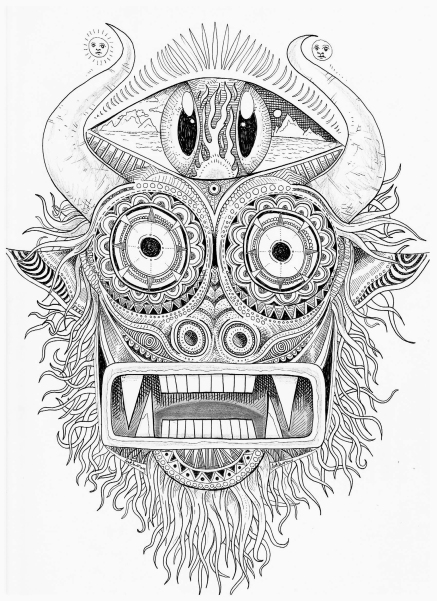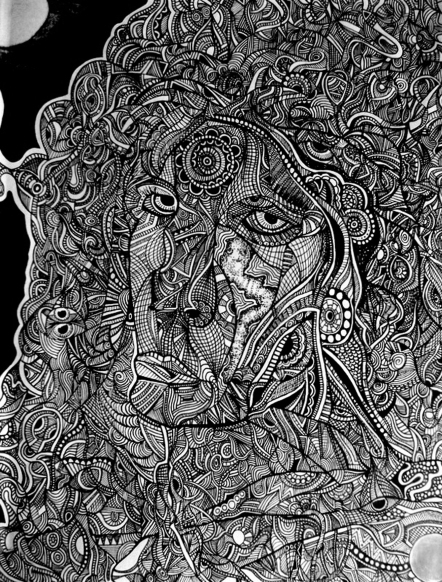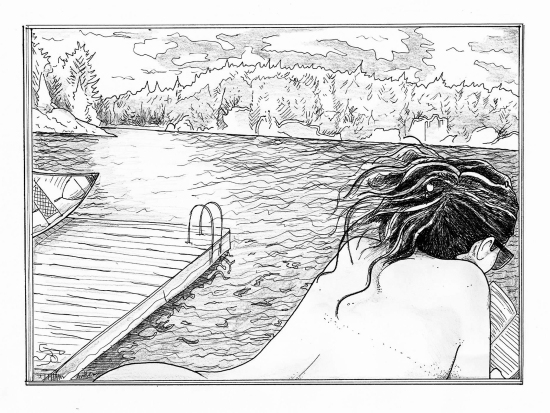Published August 2014
green (excerpt)
Sara Flemington
my world always looks like forests, black pine passing in night,
some silence that’s not real silence in the morning. can we love if yours is different,
if it’s large road signs and white curbs? can we love if you always knew houses
and i knew the animals asleep in the weeds?
your nails looked like a shoreline after the tide had moved out. you’re made of pink grey blue brown insoluble stones laid down for miles, or you’re unhealthy. either way, i’m here
in the green
before i’m gone.
From Colonized to Colonizer. In 24 Hours (excerpt)
Diana Manole (English translation by Adam J. Sorkin and Diana Manole)
“You talk too much. Kiss me,” you say.
I look at you,
overcome with remorse,
ready to walk barefoot on the icy stones, begging for forgiveness in the name of my distant ancestors
from the entire planet,
like a nun
who yearns to do penance for the world’s sins
in my long black winter coat,
filled with the down of swans who lived their flight on other lands.
“Gooey Prickles & Prickley Goo” (selections – click to enlarge)
PSYCHELATION
Monkey Madness
(pen on bristol)
“Mama Matrix Most Mysterious”
(pen on paper)
Dock
(pen on paper)
Current (excerpt)
Ekraz Singh
A tousled bed of sand conforms to
pressure from Corona with lime
soaked souls encapsulated in
the architecture of slowly eroding
bones. “Meteor showers are prehistoric,”
and “to be young and live forever” turns
into “maybe find love or whatever.” Wind
skins silence to its reverberating core.
Staggering
Lesley Kenny
Disequilibrium is a potent, if pernicious force.
My recent bout with vertigo—not the Hitchcock thriller but actual dizziness—lasted a few days until Dr. Google diagnosed a mild case of dehydration. A glass or two of Gatorade before each carafe of wine seems to have done the trick. My brain’s not spinning anymore (than usual) but still, I’m thinking about vertigo. Not just the vertigo associated with heights. I’m also thinking about the vertiginous aspects of thought, particularly for artists.
Inert yet volatile, the capacity to represent our thoughts and ideas in literary or physical form is fraught with its own peculiar unsteadiness and the agony that we will never get it exactly right. There is a reason Samuel Beckett’s words are scrawled across the notebooks, Post-its and desktop memos of frustrated artists across the cosmos: “Try again. Fail again. Fail better.” Although a Goodreads search will get you 6,147 quotes about the act of writing, Sam nailed it in six words, more than sixty years ago.
Read out loud, on the right day, Maya Angelou’s “a bird doesn’t sing because it has an answer, it sings because it has a song,” will guarantee your return to the page and a triumphal feeling of artistic entitlement. This will pass. It’s one thing to have the courage and confidence to tell stories, but it’s quite another to sculpt the language and form through endless revisions.
One of my favourite quotations about the struggle to write is a bitchy one, by Alexei Tolstoy (Leo’s distant cousin): “writing comes easily only to those lacking in self-criticism: in other words, the ungifted.” I’ll wait for you to read that again. I know you want to.
He is right, the self-righteous Alexei. People who simply want to write, fill notebooks and blogs with their spilled words. It pleases them and they keep going and why the hell not? But the people who want to write well (or paint, or draw, etc.), who want their work to be recognized and appreciated, are never content with the gulf between their ideas and their sincerest efforts at representation. The inner critic is a thin old man in a bespoke suit with the power to crush new thoughts with one raised eyebrow. What he can do to prose, even unwritten, is breathtaking.
But it doesn’t have to be an inner critic who leaves you winded. When I first discovered Letters to a Young Poet, I gasped when I came across Rilke’s line that goes something like, “unless you’d rather die than never write again, you are not a serious writer.” That’s a paraphrase. I refuse to look it up online and give that pompous prick any more hits. Since I was young and had no intention of dying any time soon, or ever, I questioned my artistic intentions and found myself lacking. For a very long time. I didn’t know then what I know now: all artists struggle profoundly with the craft of their inspiration. Kafka said that writing is a form of prayer, but he also said, “every word first looks around in every direction before letting itself be written down by me.”
The artist’s frustration, procrastination, dark recriminations and self-doubt can be crippling. The thing in our body that wants out, out, out, will not reveal itself the way we want it to, the way we believe it can. We stare at the page, the canvas, the lump of clay; our insuperable longing mute and immutable. There are more lofty things written about this moment than are dreamt of in our philosophy. This is why I love Carol Shields’ advice to novel writers: “It’s hard in the beginning, it’s hard in the middle, and it’s hard in the end.” It’s the reason Alice Munro decided to quit writing the first time. She thought to herself, “I’m too old, I don’t want to work this hard!”
But it’s not just hard work in the way many jobs are hard because of the physical component, the tedium or intellectual demands. Getting a story or painting right is hard because it’s almost impossible. Or maybe it is impossible. Alice Munro said, “the writer always fails to get as close as you intend to in the beginning—and maybe this is a good thing because if you could get all the way you would demolish something.” She says that the point of writing fiction is “not to dissect people but to come as close as you can and to celebrate… the essential mystery of people.”
I like this idea and I think it’s an important one—that writing and art is a celebration of the mystery of what it means to be human (yes, a cliché, but I can be forgiven because it is the original cliché and therefore always fresh, or something like that). It helps explain the artist’s anguish: when we sit down to write or paint or compose, we are trying to express the mystery within us, that dwells among the mystery that surrounds us, that is borne of the mystery that is us. It’s enough to give anyone vertigo.
We do sometimes reach the dizzying heights of satisfaction… in that moment before we kill our darlings. Less often, but the reason we keep going, we achieve a felicity of mystery and representation; a transport of delight. Those are the moments we are full of discovery and the urge to share it with others, rather than the ego-tied belief that we have accomplished something that proves our tiny talent. Of her long writing career, Brenda Ueland said, “at last I understood that writing was this: an impulse to share with other people a feeling or truth that I myself had.” It was her impulse to share with others because she knew they could relate and this shared understanding would be liberating.
The biblical expression, “there’s nothing new under the sun,” was probably written in the third century, BCE. Now factor in four more centuries and the Internet. This realization will either help you feel more integrated into the genuine awesome mystery of it all, or, if you’re young, it will inspire you to prove it wrong. You can’t, but you will try. And why the hell not? Kurt Vonnegut said, “we have to continually be jumping off cliffs and developing our wings on the way down.” If you don’t run off what you think is the edge, then you’ll never earn your wings.
There is something profoundly comforting in the knowledge that everything has been said before. It suggests our struggles are historical, ancestral, inherited: innate. That we are still compelled to tell stories and make paintings, in an attempt to reveal what is precious, suggests that we haven’t quite got the hang of these struggles and we’re trying—gawd how we’re trying—to understand.
It’s all about words and image and sound; and all of it’s about feeling and experience and silence. About belonging; about being left at the edge of the herd. About enchantment and disillusion; desire and rejection. No goddamn wonder we’re anxious, uncertain, fickle and preposterous. We are the story still being written, the one that may never be accepted. We are the magnificent painting that will sit, alone, in an attic.
We are the writer, the painter and the cracked carafe of wine.
We are the delicious wine.
Marvellous we are.
Wobbly, dazed and freefalling.
Untethered.
Other contributors featured in this issue include Trevor Steven Abes, Ailsa Bristow, S. E. Chaves, George Elliott Clarke, Michelle Di Cintio, Kate Marshall Flaherty, Jack Hostrawser, Justin Lauzon, Rafael MacDonald, Ian Malczewski, Mark Jordan Manner, Amanda Merritt, Amber Moore, Joshua P’ng, Salma Saadi, Yusuf Saadi and Adam Elliott Segal.





4 thoughts on “Vol. 1.1”